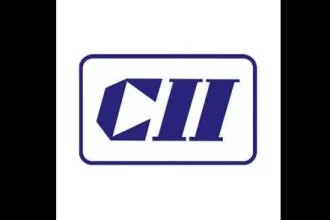The construction industry, a cornerstone of economic development, is undergoing a profound transformation. As societal expectations and legal landscapes evolve, the traditional workforce demographics are being challenged. Embracing Diversity, Equity, and Inclusion (DEI) is no longer a “nice-to-have” but a strategic imperative. One of the most effective ways for a construction firm to assess its commitment to these principles is by conducting a thorough DEI audit. This process serves as a magnifying glass, revealing hidden biases, identifying disparities, and creating a data-driven roadmap for meaningful change.
Why a DEI Audit is Crucial for the Construction Industry
A DEI audit is a systematic examination of an organization’s policies, practices, and culture. For construction companies, the benefits of undertaking such an audit are numerous and directly impact the bottom line, legal standing, and overall business health.
- Identifies and Mitigates Legal and Reputational Risks: The legal and regulatory landscape surrounding DEI is becoming more complex. As noted by Trent Cotney, a partner at law firm Adams & Reese, contractors who do not have a clear understanding of their DEI policies risk running afoul of conflicting regulations, especially when dealing with public or federal projects. A proactive audit can help companies identify and correct potentially discriminatory practices, shielding them from costly lawsuits and reputational damage. It ensures that a company’s internal policies comply with all relevant laws and guidelines.
- Drives Innovation and Efficiency: Diverse teams, bringing together varied perspectives, experiences, and problem-solving approaches, are known to foster innovation. A report from Diversio highlights that a diverse design team, for example, might incorporate unique architectural influences, leading to more efficient building designs. The different backgrounds of team members can also introduce best practices from their past experiences, optimizing operational processes and project timelines [link to Diversio source: https://diversio.com/industries/dei-construction/].
- Enhances Talent Acquisition and Retention: The construction industry faces a significant talent shortage. To attract and retain the best workers, companies must foster an inclusive environment where all employees feel valued and have equal opportunities to succeed. A DEI audit reveals issues that might be driving away talent, such as pay gaps or a lack of promotional opportunities for specific demographic groups. The data from such an audit allows for the creation of more equitable policies, which in turn increases employee trust, engagement, and loyalty. As stated by CultureMonkey, an audit helps uncover hidden biases and reveals areas for improvement that may otherwise go unnoticed.
- Improves Stakeholder and Community Engagement: Construction firms often work on projects that directly impact local communities. A diverse workforce that reflects the community it serves can better understand and cater to its needs. This alignment with DEI principles can lead to enhanced stakeholder engagement and build a stronger, more positive relationship with clients and the public. DEI is not just about building structures; it’s about building a better future for all.
How to Conduct a Comprehensive DEI Audit in Construction
A successful DEI audit is a structured and methodical process that requires commitment from leadership and participation from all levels of the organization.
- Form a Diverse Audit Team and Define Scope: The first step is to establish a dedicated team to lead the audit. This team should be diverse, representing various backgrounds, departments, and seniority levels. The team should then define the scope of the audit, setting clear objectives and identifying key areas of focus, such as recruitment, promotions, compensation, and company culture.
- Review Policies, Procedures, and Systems: The audit team must conduct a thorough review of all company policies and procedures. This includes an examination of hiring practices, from job descriptions and candidate sourcing to interview processes. Policies on promotions, performance reviews, and compensation should be scrutinized to ensure they are fair and free of unconscious bias. Outdated policies, such as traditional parental leave that only benefits birth parents, can be identified and updated to be more inclusive.
- Collect and Analyze Data: An effective DEI audit relies on both quantitative and qualitative data.
- Quantitative Data: This involves gathering demographic data on the workforce at all levels. Data on hiring rates, promotion rates, and turnover should be disaggregated by race, gender, and other protected characteristics. The audit should also conduct a gender or pay equity analysis to identify any inconsistencies in salary structures between similar roles [link to HiBob source: https://www.hibob.com/hr-tools/dei-audit-checklist/].
- Qualitative Data: This is where the audit gets to the heart of the company culture. Through confidential surveys, one-on-one interviews, and focus groups, the audit team can collect honest feedback from employees about their experiences. This helps to understand their sense of belonging, whether they feel their voices are heard, and if they have experienced or witnessed bias. Pearn Kandola emphasizes the importance of creating a culture of psychological safety to ensure honest feedback.
- Assess the Workplace Culture: Beyond formal policies, the audit should evaluate the day-to-day work environment. This includes looking at the effectiveness of communication channels, the presence and impact of Employee Resource Groups (ERGs), and how well leaders are held accountable for DEI goals. The Institute of Internal Auditors (IIA) and Deloitte released a report outlining how internal audit functions can play a key role in assessing DEI culture and engaging with stakeholders.
- Benchmark, Report, and Plan for Action: Once the data is collected and analyzed, the findings should be benchmarked against industry standards. The audit team should then present a comprehensive report to leadership, highlighting strengths, weaknesses, and a clear, actionable plan. This plan should include specific, measurable goals (e.g., increasing the representation of women in project management roles by a certain percentage) and a timeline for implementation. The report should avoid a “one-size-fits-all” approach, as the needs of each organization are unique.
Conclusion
A DEI audit is a powerful tool for construction companies committed to building a more inclusive and equitable future. It moves the conversation beyond mere platitudes and provides a data-driven foundation for strategic change. By identifying inequities, mitigating risks, attracting top talent, and driving innovation, an audit helps to ensure that a company is not only compliant with modern standards but is also well-positioned to thrive in an increasingly diverse and competitive landscape. The investment in a comprehensive DEI audit is an investment in the long-term success, resilience, and ethical standing of the entire organization.












